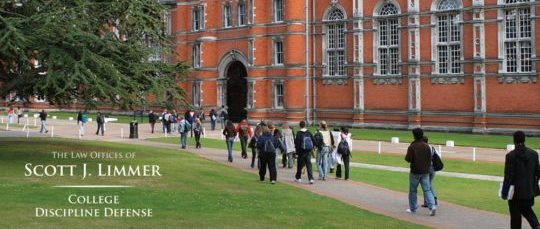The National Association of College and University Attorneys (NACUA) stirred controversy last year by publishing advice from a prominent law firm on ways colleges and universities can protect themselves against increasingly numerous and complex lawsuits filed by students involved in campus sexual misconduct hearings. The 18-page article, “Between a Rock and a Hard Place: A Discussion of Issues that Frequently Arise in Sexual Misconduct-Related Litigation against Colleges and Universities,” was written by five attorneys at the Richmond-based McGuireWoods law firm and published as part of the association’s NACUA Notes series of topical papers giving brief summaries of legal issues.
Risks to Schools of Conducting Sexual Misconduct-Related Litigation
After admitting that the growing number of lawsuits brought against colleges and universities, both by students making accusations of sexual misconduct and by students targeted by such allegations, represents a “legal and political minefield,” the article sketched some frequently litigated issues – on the one hand, accusations schools had discouraged students from filing complaints, failed to investigate adequately or impose appropriate punishments, or complaints by accused students that school disciplinary proceedings or sanctions were unwarranted or unfair. (Since 2014, the article notes, so-called “reverse Title IX” lawsuits by accused students challenging school disciplinary proceedings have outnumbered lawsuits by students claiming a school failed to take their accusations seriously.
Guidance from the federal Department of Education’s Office of Civil Rights, which can investigate and enforce sex-discrimination complaints under Title IX against federally-assisted schools, may not provide a reliable gauge for how schools should evaluate their potential Title IX liability in private litigation, the article further cautions. So they advise schools to eye every sexual misconduct allegation as potentially bringing lawsuits their way. It also encourages school counsel to engage in early planning and strategic thinking to place the institution in the best possible position if sued either by the claimed student victim of harassment or assault, or by the alleged student perpetrator.
The most controversial element of the advice came in its discussion of document preservation. While it will be important for schools’ ability to defend against litigation to have clear and well-documented policies for complying with Title IX requirements and spelling out procedures for dealing with student complaints, the advice paper also urged senior administrators and general counsel carefully to consider destroying early “preliminary and personal documents,” possibly including emails, pre-investigation staff notes, notes made during disciplinary hearings, and report drafts – which, it notes, could “prove very useful” to attorneys who may later sue the school – and instead keep just a “master list” of official proceedings, completed reports, and outcome documents offering a “single, consistent record” free of contradictions that might be found in earlier e-mails, notes and documents.
That suggestion drew fire from some as a ploy likely to be both unethical and ineffective. One commenter likened the suggestion to advising police they should hide evidence suggesting they had arrested the wrong suspect for a crime. Others noted the recommended document purge might run counter to retention policies, particularly at publicly-funded schools, or draw sanctions if the case went before a judge. Eventually, NACUA noted the policy was merely a suggestion by the article’s authors, and not endorsed by the association.
